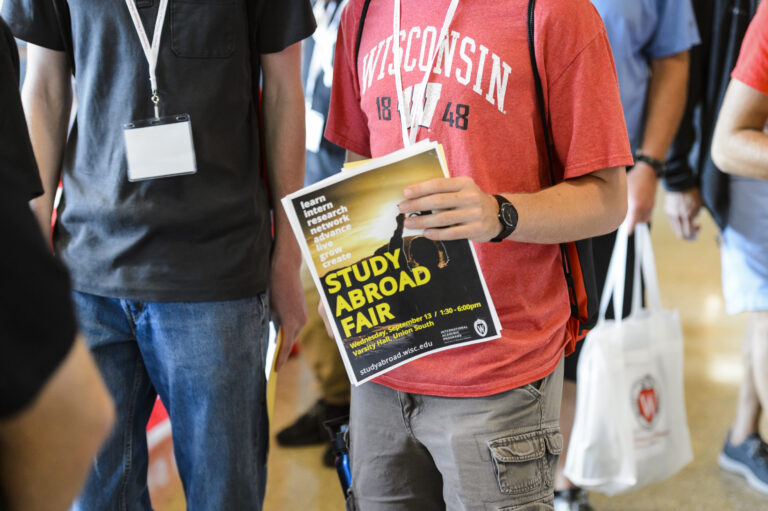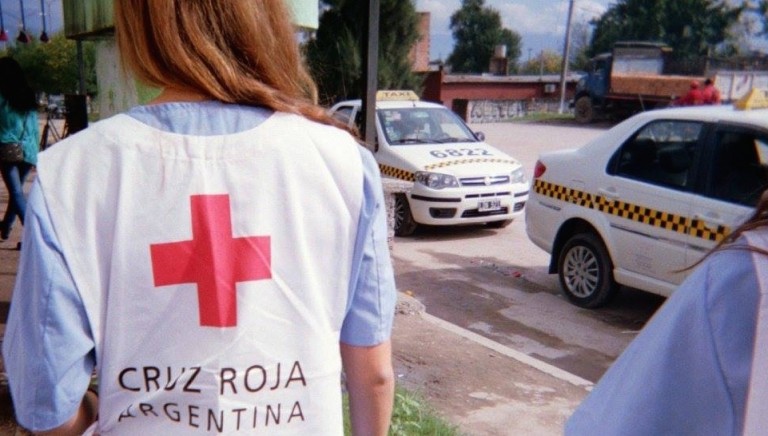
Study Abroad
Yes, you can prepare for a health profession and study abroad! There are many opportunities for undergraduate students to do great things in other countries. You can learn about them from the following offices on our campus:
- Study Abroad – International Academic Programs (IAP)
- International Internship Program (IIP)
- CALS Study Abroad
- International Engineering Studies & Programs
Advisors in these offices connect students with international academic programs and internship opportunities in a variety of fields, including the sciences.
Field Experiences with UW-Madison’s Global Health Institute
The Undergraduate Certificate in Global Health requires that students do a field experience in public health to complete the certificate.
Students can choose from field experiences led by UW-Madison faculty in many different countries and are a great opportunity to learn about healthcare delivery in an international context.
Experience in public health gives you exposure to broader social, cultural, and environmental factors that impact human health.

Service Trips Abroad
Service trips raise many legal and ethical concerns because students are often placed in situations and asked to perform tasks for which they are authorized. As one article states, going on these trips “may end up hurting, not helping, [your] graduate applications, because many medical, dental, and nursing schools view such behavior as unethical and irresponsible.” Admissions committees value international experience, but they do not expect these experiences to be tied to healthcare.
To address growing concern about ethics and safety around these trips, CPHA invited student leaders to form the Student Pre-Health Community (SPHC) and asked them to craft guidelines for students considering these trips. They developed the Ethical Considerations for Health-Related Service Abroad in collaboration with the UW-Madison Global Health Institute, Center for Pre-Health Advising, and School of Medicine and Public Health. These guidelines were published in Harvard University’s Health and Human Rights Journal in 2019.
To learn more about challenges associated with short-term clinical service trips, explore this free Global Ambassador for Patient Safety (GAPS) course offered by the University of Minnesota’s Pre-Health Student Resource Center.
Questions to Consider
To guide your research and evaluation of programs, ask yourself:
- What are your reasons for wanting to go on a health-related service trip?
- What are you hoping to learn from this experience?
- What do you know about the program you want through which you want to go abroad? Is it for-profit or non-profit?
- What are you paying for when you go on your trip?
- Does the program have a presence in or near the community on a sustained basis, or is it a mobile clinic?
- Does the program partner with local clinicians and community leaders?
- How much do you know about the community you will be serving? Do you speak the language? Is a translator available?
- Will you be caring for patients independently? Do you have certification or qualifications that allow you to perform the same patient care duties in the United States? What credentials are held by practitioners in the place where you are traveling?
If you go on a service trip abroad, please read: UW Ethical Considerations for Service Abroad
This is an accordion element with a series of buttons that open and close related content panels.
Key Highlights from UW Ethical Considerations for Service Abroad (which you should read)
- Volunteer with well-established programs with strong local ties. Programs should have worked with undergraduate students in the past and be engaged in the sustained support of a community.
- Disclose to the program and any other participating organizations that the trip is not sponsored by, controlled by, or otherwise affiliated with the University of Wisconsin.
- Limit the choice of trips to areas where you have the ability to communicate with clinicians and patients in that community. This may include hiring a translator if necessary.
- Ensure that you can communicate the following statements in the local language or languages:
- “I am an American student and not a healthcare provider. I am here to learn about healthcare. Do I have your permission to be present at this time?”
- “Thank you for offering me the opportunity to do X. I do not feel qualified and I do not have the required training to do this.
- Learn about local cultural norms and practices around clinical practice, sexual health, as well as law enforcement, language, and gender norms.
- See a doctor before you go, know what to do if you get sick, and pack appropriately!
- Be aware of the potential ramifications related to donations and learn more about donations!
- Have a detailed plan for activities, including time to debrief at the end of each day.
- Do not provide clinical care to patients or assume responsibilities for which you do not have certification in that location. This includes the distribution of medication because of the potential for harm and lack of adequate follow-up care.
- Make sure patients and their families know that you are not in a professional program.
- Ask patients for consent or permission, letting them know you are there to observe and will not be providing healthcare.
- Request permission before obtaining any photographs or recordings, and being prepared to state the purpose for photographs or recordings when asked.
- Organize a formal debriefing session after the trip where you can provide feedback on what did and did not go well.
